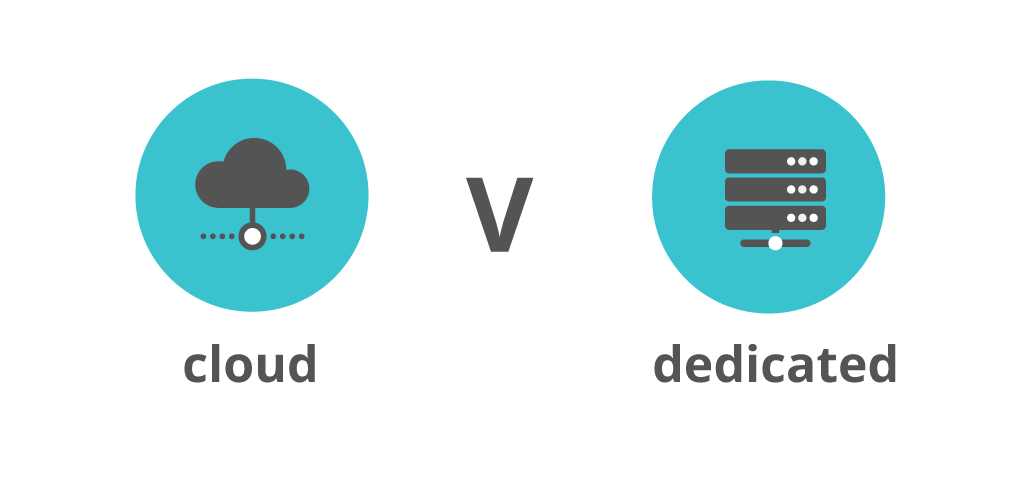Table of Content
Choice of a hosting platform is probably one of the most vital decisions that a new business owner or a site developer is required to deal with. This can be an overwhelming task due to availability of number of service providers as well as multiple types of hosting platforms.
Selection of the right server platform can be an extremely difficult task, also because of the new breed of cloud servers that have potential to deliver several benefits in comparison with traditional solutions.
The principal choices available for the modern entrepreneurs and site developers are cloud servers and traditional dedicated servers. Incidentally, these are also the most sought after platforms for empowering web hosting.
Selecting the Right Hosting Platform
A detailed and comparative analysis of vital features of performance oriented and feature rich platforms can bring more clarity of vision while arriving at the right choice. It would be logical to compare cloud servers with legacy hosting platform built by using a dedicated server due to the close resemblance and notable differences between these.
Similarities between cloud and dedicated servers start from the fundamental objectives that are fulfilled by these server platforms. Both types of servers accept requests from users, process the data, and return the requested data or content that is being stored in their system in a fraction of the moment.
The basic differences to be assessed must cover the speed of accomplishing the apparently identical operations performed by dedicated and cloud servers. We should also study the impact of hosting on the bottom line along with scalability, administration, and last but not the least user experience.
Server Configuration
We need to understand that every criterion that differentiates the two server platforms is the end result of the configuration of each server. Therefore by knowing the configuration differences, we will understand how these servers deliver greater flexibility, scalability and performance when compared with shared or Virtual Private Server.
Basic difference between a dedicated server and cloud server in terms of configuration lies in the fact that a dedicated server exists in the form of a single physical unit while a cloud server is developed as a system. All server resources of a dedicated server are designed to benefit a single user. In a cloud server system, you will need to develop a widespread network of machines that facilitate storage via a large Storage Area Network.
A dedicated server is backed by singularity of resources while a cloud server system is empowered by multiplicity. Moreover, in a cloud server arrangement you will find decentralization of hosted data as well as the data of VMs. Management of several independent resources of servers in a cloud system is supported by a hypervisor which also facilitates separation of cloud servers with different sizes. The resources that are handled by the hypervisor include processors, storage, and RAM.
Storage Factor
In a cloud system, you can leverage the combination of the latest OS and hypervisor offered by the service provider to achieve unlimited storage expansion. The main advantage of such expansion is its ability to obviate current website operations thereby resulting in zero downtime.
However, if you want to avoid any downtime while performing storage expansion in a dedicated server environment then a detailed planning is essential. It cannot be achieved at a short notice. Moreover, a physical server has its own limitations in terms of drive bays that provide storage capacity.
This also applies to addition of processors in a dedicated server to enhance processing power of the platform. The operation will require migration of the site to another server and may result in downtime. Cloud servers suffer from limitations of nodes if a user has to further enhance processing power.
Administration and Processing
System administration tasks need to be handled by users with help of expert staff that has in-depth understanding of data storage needs, processing, and user’s data management policies. When it comes to scaling, the system admin personnel have to team up with staff from service provider. In addition, there must be a proactive and a careful approach for implementation of upgrades and execution of maintenance tasks.
Thanks to solutions automation, users of cloud servers can enhance efficiency and cost optimization of their server usage. Similarly, cloud servers can be promptly scaled up for handling grater workloads or for managing traffic spurts. However, in a dedicated server you have a limited scope to scale up the resources. Instant provisioning of resources is the hallmark of cloud server arrangement. If you are planning a very large expansion, then you will need to build a server system that blends resources of dedicated as well as cloud servers.
In conclusion
Although the basic objectives of dedicated and cloud servers are similar, there are a great number of differences in their capabilities and efficiencies. If you are aiming for a high performance platform, then it would be prudent to choose a dedicated server. If scalability is the need of the hour, then a cloud server system is a logical answer.
Read More at : Should Your Business Choose a Cloud Server or Dedicated Server?






 Live Chat
Live Chat
